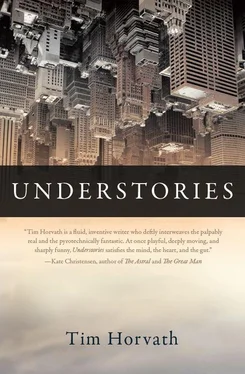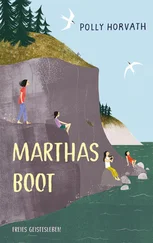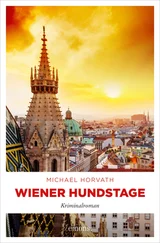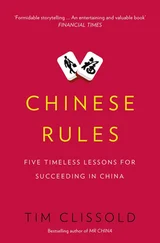
Désirée had called me and warned me my dad wasn’t doing well, that he seemed less cognizant of his surroundings. He was talking about Lake Superior and hunting lodges and a mother bear. She said that, by the way, she had read the book, and while she wasn’t sure she had understood most of it, and it was unlike any other book that she had ever read, she’d found it to be “powerful and very, very emotional.” I thanked her without quite knowing why, and added, “I bet he’d be glad to know that.”
She said, “Oh, I told him. I told him I particularly liked the part about bats.”
“Oh, yes,” I shot right back, perhaps a bit too eagerly. “Where he goes into the whole thing about insideness and outsideness, and how we are becoming more batlike as we spend more and more of our lives indoors.”
“Yes.” I could hear her smiling over the phone as she noted that I had read it, perhaps concurrently with her. “I could identify with that. I never seem to get outside these days.” She paused for a moment. “Some of that stuff was strange, though.”
“About the proportions of the bat’s head to its body?”
“That’s it,” she said, and I could sense her nodding and even laughing.
“My dad’s a strange guy,” I said. “He has some strange notions about the world.”
Later, when I arrived at the hospital, and Désirée had left the book behind with a note, he came awake. He couldn’t really gesture, lacking the facial control to do so, but I could sense that inwardly he was motioning to it as he said, “She liked it.”
“So I hear.”
Then, a few minutes later: “Who’ll have it next?”
I said, “I’ll bring it back to the library.”
“Hmm. Then?”
“It will go back on the shelf.”
“Then?”
At what point does one recognize that the truth is precisely the wrong instrument for a task? I was in charge of circulation. A slowness, a quasi-geological time governs the circulation of books: the punctuation of frantic movements as a book takes on a buzz, gets reviewed, followed by years of stillness, silence, neglect. Perhaps a motion picture is commissioned, produced, released; the book stirs, reenters the commerce of the world, mingles and becomes inebriated in the gala of its success, and eventually tapers off, only somewhat reluctantly, into a second retirement. Envision a remake thirty years later — it happens. There is always hope, you see.
But imagine if one could speed up time, fast-forward and rewind over longer intervals, see at once all the permutations of a book’s lifetime. From this vantage point, the Director of Circulation might appear the ringleader of a circus — coordinating acrobats, elephants, fire-breathing ladies, third-rate clowns, contract renegotiations. Books would fly off the shelves in a blur, leaving gaps like children’s debut teeth, making their forays out into the world, and swooping back to their perches eventually like osprey. Indeed, sideways and spines up, with their covers spread out, would they look like anything other than birds? I paused, though, as I realized that what was missing from this vision were the temporary habitations of the book outside, its journeys through the neighborhood. Or, as I knew all too well from the day-to-day job, throughout the world. How laughably common is it to hear “I returned that — I’m absolutely positive!” only to receive a sheepish note from a return address far away — New Mexico? — that reads, “This turned up while unpacking. Sorry!” One would have hoped for a jar of salsa, at least.
I thought, inevitably, of that Other Book. The Atlas. Unwritten, perhaps unwritable. I pictured the ideal version of that book; once one has admitted the impossible, one might as well usher in its unruly companions. Picture a tracer placed in the book that would record its travels to and fro. No, too much of a concession to the regime. Rather, render a version of the book itself that includes a sheaf of blank pages and empty maps. These would be pages reserved for the recording of the book’s own journey, not merely where it went but what went on in the lives of those around it while it was in their abodes. I foresee, and you do, too, that gradually the journal grows and grows, till it subsumes the book, essentially becomes the book. Worry about that then.
I was the Director of Circulation. I said, “It is checked out by a boy.”
He seemed pleased with this answer. But not satisfied. Perhaps he, too, at that moment was thinking of The Atlas ; perhaps he never ceased thinking of it; perhaps it was error to think that it was a book at all, that it was anything other than the very medium of thought itself. “And then?” The machines pulsed and bleeped; the room waited for more. The Hula-hoop froze, though it did not tumble; it hovered around the waist of the girl — did I neglect to mention that she was there?
I continued: “He needs it for school.” It was all I could think of. The hoop was still poised. “For earth science class.”
He laughed. “Required text?” he said.
My father didn’t mind imaginative leaps, but he was no Panglossian. “Nope,” I said. “For extra credit.” The story pushed on. With these minimal legs, it somehow staggered to its feet, however awkwardly. “They’re. . not covered in the regular curriculum. The teacher. . gave them a list. ‘Topics Not Covered,’ it read. Passed it around the room.” Somehow with the contrivance of that list, the story started to plod forward in my mind, then to lumber forth with increased momentum as the sheet worked its way around the room. I didn’t know where any of these images, which had the materiality and authority of memories, were coming from, except in the vaguest sense. I could see my father was transfixed. “The kid, he signed up first. . for avalanches. He wanted avalanches, desperately. Who wouldn’t? He was overjoyed when the list came around. . and the four people ahead of him hadn’t signed up for avalanches. What were the odds?
“So he signs his name. But when the list comes around and the teacher wants to double-check. . she reads off Billy Fletcher’s name for avalanches. He wants to protest; he can see from where he’s sitting that Billy has crossed off his name — it’s Heath, and he — gets mocked for it sometimes, especially next year when they’re doing Macbeth. Anyway, it’s crossed, blatantly, off, but Billy’s bigger, more developed, works out, football player. So Heath keeps his mouth shut. Caves is left, still. Anybody want caves? He shoots up his hand. He needs the extra credit way more than he needs avalanches. He’s fallen behind, barely passing the class. He doesn’t mind earth science, rather enjoys it, actually, but it’s. . a lot of memorization. Doesn’t have time. Most of his free time is spent over in. . the hunting store where he works, helps out his dad, exhausting.
“So he gets one day off, the start of actual hunting season. Everything’s closed, but. . for some reason the library’s open. Let’s say. . the librarian there is antihunting. Heath heads for the library and finds your book on caves. Takes it out. Takes out a couple of other books. But he knows the project has to be good. He doesn’t have a lot of time, though — next day it’s back to the store. He’s strapped in math class, too, where Mrs. Clayman is going over the Cartesian graphs. He doesn’t get functions. So. . he copies a bit, more than a bit, in truth, three pages.”
As I related this, a part of me was observing myself, and that part wanted to discern where the details were coming from. They seemed conjured from anywhere and nowhere at once, at first trickling, then gushing forth as though from some reservoir of necessity. A thought that I had vaguely had before crystallized in my mind: nonfiction could be pinned down, assigned its plot of shelf real estate, where it could reliably be located in the continuum of knowledge, in any library in any country in the world. But fictions were like transient, shifty renters — all we could do with them was alphabetize them by the arbitrary condition of the authors’ last names and hope they stayed put.
Читать дальше













